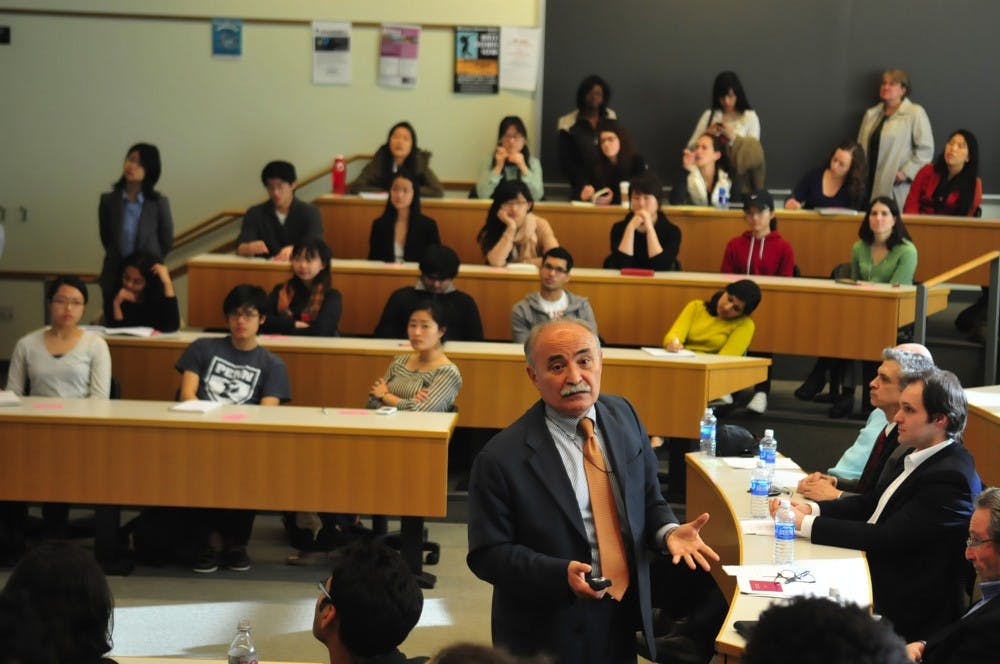
Before he went to graduate school, Wharton assistant professor Jeremy Tobacman taught English and grew rice on an Indonesian island. That experience was the beginning of a long relationship with development economics.
Tobacman was one of five faculty members to speak at Monday afternoon’s Social Impact Talks. The Penn Social Entrepreneurship Mentoring program hosted the event for about 80 students in Huntsman Hall.
The talks were similar to speed-dating of an economic sort — each lecturer presented a different aspect of social impact in 10 minutes or less.
Tobacman’s trip to Indonesia sparked his interest in social impact business models. “I’ve been interested in … the ways that development economics can help to improve agriculture and agricultural risk management ever since.”
He said one of the solutions to improving financial conditions in low-income households, a topic he studies, is microfinance. “When people are poor, the consequences of bad events are more severe, whether it’s an illness or a storm or a fire that destroys their property,” he said.
James Thompson, associate director of Wharton Entrepreneurial Programs, addressed the other side of social impact businesses.
Nonprofit or social impact job positions often pay much less compared to more traditional business careers.
“The most capable people are capable of getting well-paid jobs,” Thompson said. “Most of them will take those jobs rather than do something that pays much less … they won’t come and work five or 10 years in a venture and earn nothing because it doesn’t make economic sense to them.”
Urban Studies professor Andrew Lamas, who also serves on the Faculty Advisory Board of PennSEM, was almost fired from his position as a lecturer in Wharton after colleagues accused him of being “anti-business.”
“I’m not anti-business; I’m anti-capitalist,” he said.
According to Lamas, business, market, capitalism and entrepreneurship are not synonymous. “I’m trying to be provocative,” he said as he described several possible ways to reform capitalism.
Djordjija Petkoski, the head of the Business, Competitiveness and Development team at the World Bank Institute, spoke about income disparities and business’ main function.
Although the purpose of businesses is to create wealth for shareholders and maximize profits, he said, money holds little value if it isn’t contributing to a greater good.
It’s a lifestyle destined to leave one saying, “I’ve spent all this money on all these buildings, but I’ve wasted my life,” Petkoski said.
Leonard Lodish, Wharton’s vice dean for the Program for Social Impact, is exemplary of the philanthropic attitude Petkoski spoke about. Lodish bikes cross-country in tandem with his wife each year to raise money for the ALS Association.
College junior Julia Graber came to the event “to see the research being done at Wharton on social responsibility.”
Thompson said the growth of social entrepreneurship and social impact business was evident in the event’s turn-out. “Five years ago, we may have had 10 people in this room tonight. Today we had 70, 80, maybe more. It’s great.”
The Daily Pennsylvanian is an independent, student-run newspaper. Please consider making a donation to support the coverage that shapes the University. Your generosity ensures a future of strong journalism at Penn.
DonatePlease note All comments are eligible for publication in The Daily Pennsylvanian.





